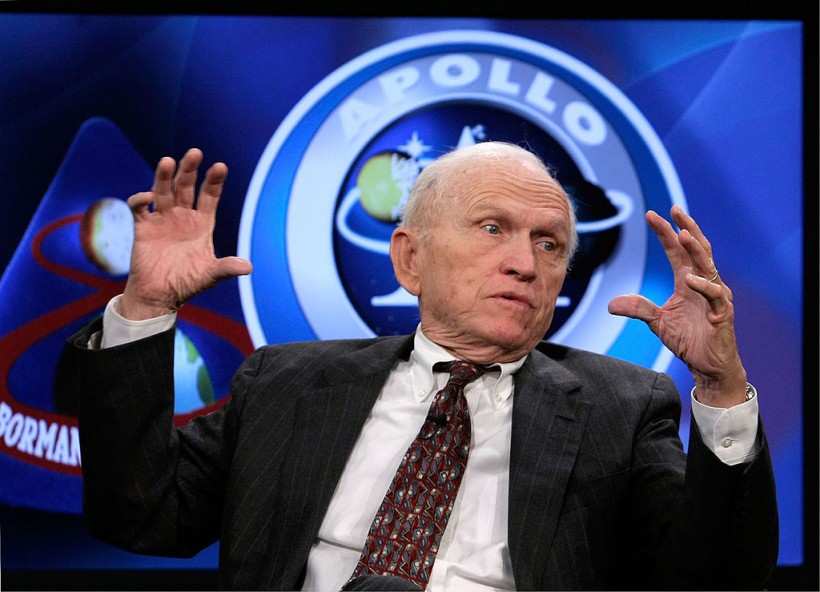Astronaut Frank Borman, renowned for commanding Apollo 8's historic 1968 flight that orbited the moon, has died at 95 on November 7 in Billings, Montana, according to NASA. Beyond his astronaut career, Borman led Eastern Airlines in the '70s and '80s.
Best known for Apollo 8, he and crewmates James Lovell and William Anders made history by being the first to orbit the Moon and witness Earth from space. Borman's death was confirmed by NASA, marking the end of an era in space exploration.

Apollo 8 crew member Frank Borman speaks during a live taping of a NASA TV program at the Newseum November 13, 2008 in Washington, DC.
Apollo 8 Mission: Humanity's Journey Around the Moon
Apollo 8, commanded by Frank Borman, made a historic lunar orbit, flying 60 miles above the Moon's surface to photograph potential landing spots for future moonwalks.
Launched on December 21, 1968, Apollo 8 had diverse mission objectives, including demonstrating translunar injection and refining systems for future lunar operations. The spacecraft, carrying astronauts Borman, James Lovell Jr., and William Anders, orbited the Moon, conducted midcourse corrections, and demonstrated various aspects of lunar operations.
During the 20-hour lunar orbit, the crew conducted tasks such as landmark tracking and stereo photography. A trans-Earth injection burn added velocity to the return journey. Telecasts during the mission, including a Christmas Eve broadcast, featured verses from Genesis.
Borman concluded the transmission, stating, "And from the crew of Apollo 8, we close with good night, good luck, a Merry Christmas, and God bless all of you - all of you on the good Earth."
Separation of the command module occurred smoothly, with a double-skip maneuver during re-entry. Apollo 8 splashed down on December 27, 1968, precisely on time, about 5,100 yards from the recovery ship USS Yorktown.
The recovery was planned with helicopters and aircraft hovering until local sunrise, 50 minutes after splashdown. The crew reached the recovery ship at 12:20 p.m. EST, concluding the successful mission.
READ ALSO: Apollo Mission Photos Resurface in the Quest To Find Water on the Moon
Frank Borman's Legacy
Frank Borman, a two-time space traveler who had no ambition to set foot on the Moon, previously commanded the Gemini 7 mission in 1965, establishing a record for time spent in space.
NASA Administrator Bill Nelson hailed Borman as a true American hero, emphasizing his profound passion for aviation and exploration. Borman, alongside James Lovell, achieved the first space orbital rendezvous with Gemini 6 during the two-week Gemini 7 mission launched on December 4, 1965.
In his autobiography, "Countdown," Borman revealed that the original plan for Apollo 8 was an Earth orbit. However, the success of Apollo 7 in October 1968 prompted NASA to alter the plan and aim for a lunar mission, partly driven by the desire to outpace the Russians.
Borman expressed his primary concern as beating the Russians and completing the mission successfully. The iconic "Earthrise" photo, capturing a blue and white Earth above the lunar landscape, was taken by William Anders during the crew's fourth orbit, marking a profound and emotional moment for the astronauts.
Reflecting on the Earth from space, Borman described it as a majestic and emotional sight, expressing a shared unspoken sentiment among the crew about their families on the spinning globe. He mused that this might be akin to what God sees, encapsulating the awe-inspiring perspective afforded by their historic journey.
RELATED ARTICLE: Thomas Ken Mattingly Dead: NASA Astronaut Key to Apollo Program's Success
Check out more news and information on Moon Mission in Science Times.














